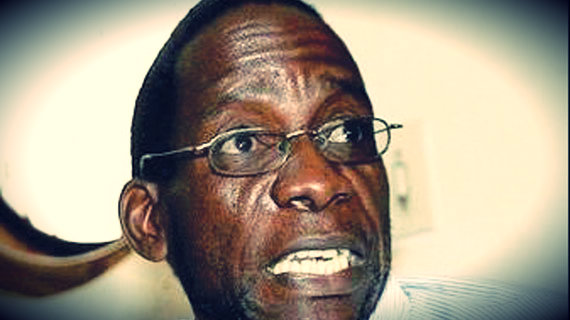
LOVEMORE Madhuku has proposed an interpretation of the provisions dealing with the election of mayors. In the process he has portrayed himself as the oracle of statutory interpretation and implied only his interpretation of legal provisions holds sway.
REPORT BY KUCACA PHULU/ MATSHOBANA NCUBE
For starters sight must not be lost of the fact that it was Madhuku who advised President Robert Mugabe to amend the Electoral Law, in the run-up to the infamous elections on July 31, in an illegal way; illegal because an instrument is subsidiary legislation and cannot be used to amend a substantive Act of Parliament. Such amendment can only be done by Parliament and not by the President sitting on his own when Parliament is not in session. It is Madhuku who amended the National Constitution Assembly constitution so as to allow him to run endlessly for the chairmanship. The only other person known for such is Mugabe.
Section 265(2) provides as follows: “All members of the local authorities must be elected by registered voters within the areas for which the local authorities have been established.”
It does not state how such members must be elected by registered voters.It is left to another section. Councilors are elected directly by registered voters during the general election. Section 274(5) provides for an indirect election of mayors by councillors sitting as an electoral college. It is this election that is envisaged by Section 265(2) and not the general election. The same section requires only an executive mayor to be elected directly by registered voters and not the non-executive mayor. The approach espoused by Madhuku is not the only way to interpret the legal provisions in issue. There are various ways to interpret legal provisions; be it of the Constitution, an Act of Parliament or any legal provision.
It has been opined that there is only one interpretation to the above section of the Constitution. The argument says that a mayor should be elected by the councillors of any local authority if that person is him/herself a councillor. Nowhere is a such a qualification made a requirement. This is a narrow and restrictive interpretation which seeks to coble up a qualification for one to be a mayor when in fact, the Constitution is silent on the issue, as opposed to a broader and more honest approach which is the preferred approach in interpreting constitutional provisions. In any case, he has referred to only one section of the Constitution.
The proper manner of interpreting a constitutional provision, or any law for that matter, is to look at the various sections of the Constitution dealing with the matter. Surely, if the interpretation was to allow only for one approach, it should clearly say so. The Constitution should have provided as such, that is the literal interpretation. The direct election of a mayor by registered voters is envisaged in Section 274(5) which envisages the election of an executive mayor. In that instance there should be a law (Act of Parliament) that allows for the election of a mayor directly by the residents. Such direct election should be spelt out in an Act of Parliament. Section 103 of the Urban Councils Act allows for the election of a person outside of the councillors as a mayor. That provision is not in any way inconsistent with section 265(2) of the Constitution of Zimbabwe. It is actually in consonance with it.
Section 265(2) says a mayor shall be a member of the local authority elected by the voters.This action does not stipulate a qualification for a mayor, but allows a mayor, once elected to be a member of the local authority.
- Chamisa under fire over US$120K donation
- Mavhunga puts DeMbare into Chibuku quarterfinals
- Pension funds bet on Cabora Bassa oilfields
- Councils defy govt fire tender directive
Keep Reading
A councillor is elected by residents in a particular ward and not by the whole local authority. He is only elected indirectly by the other councillors who sit as an electoral college to elect a mayor and deputy mayor.
Any other person from outside of the councillors, if elected by councillors, is also indirectly elected by the councillors sitting as an electoral college on behalf of the residents. Both the councillor and the person from outside the council are elected indirectly by the residents in that it is the whole council that elects such person to the position of mayor. So, ultimately, in which ever scenario, the mayor is elected by the Electoral College which is the full council. There is no mayor any where under the sun in Zimbabwe who will be directly elected by the voters. What is key is that such member of local authority is elected by registered voters, albeit indirectly, in the particular local authority. So, there is no absurdity or nugatoriness in this interpretation. One does not need to be a member of the particular local authority (councillor), first, to be elected mayor. One becomes a member of the local authority, after election.
The Constitutional Court may rule otherwise as per Madhuku’s advice, but that will be the view of the individual judges at the time, not that it will be the only interpretation of the law.
The judges themselves can be split split, as we saw in the Jealous Mawarire case (the July 31 elections case), where two judges out of nine dissented and wrote good and equally persuasive decisions. So ultimately, it went to a vote. Another constitutional bench will definitely agree with an interpretation contrary to the one favoured by Madhuku.
- Kucaca Phulu and Matshobana Ncube










